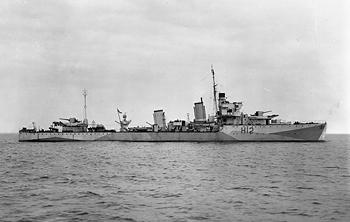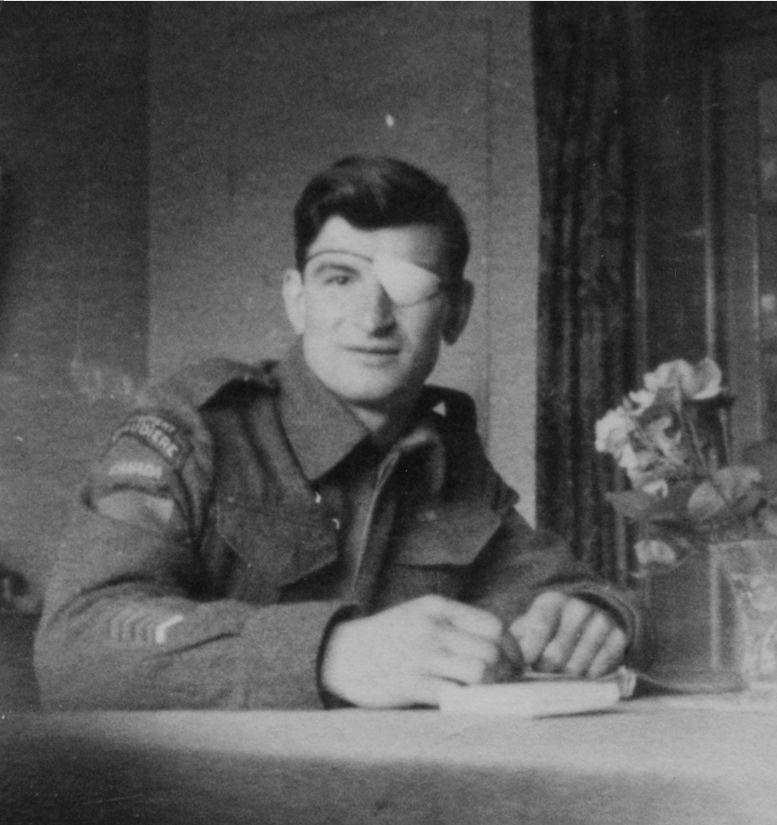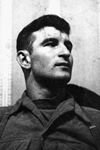I Was There! - We Formed Human Pyramids to Cross Wadi Zigzau
The War Illustrated, Volume 6, No. 152, Page 700, April 16, 1943.
A young British major with a bullet embedded an inch above his heart continued to lead his men at the storming of Wadi Zigzau, in the first stage of the Mareth Line attack. Paul Bewsher, Daily Mail Special Correspondent with the Eighth Army, describes here his meeting with the gallant officer, and the major tells his own thrilling story.
Bare to the waist, he sat in the marquee of a field dressing station. All round him were unshaven Germans in dirty grey-green uniforms, receiving treatment. Tired and drawn, but still full of enthusiasm, this dark, lean-faced man from Taunton, Somerset, who won the Military Cross at El Alamein, described his men's heroism – without ever mentioning his own.
"Alamein was child's play compared to this", he said, as he drank hot tea and munched sardines and biscuits. "Our objective was a strong-point known as Ksiba Ouest just across the Wadi Zigzau. We knew from the maps and aerial photographs that it consisted of pillboxes with machine-gun nests round it, and we had rehearsed the whole operation as far as we could.
"After dark we gathered about half a mile this side of the wadi. While we were waiting we came under heavy shell-fire and machine-gun fire from both sides. Then to the second down came our own barrage, dropping heavy concentrations of shells on enemy positions right in front of us. For 20 minutes they came over. Then it was zero hour for our attack.
"Like clockwork those guns began laying a creeping barrage in front of us. It was a perfect, magnificent piece of work. Not one shell fell on our own men. Engineers had driven a path through the minefields, and we reached the near side of the wadi without meeting any enemy troops.
"It was full moon and very bright. The wadi is a very wide gully, with precipitous sides, and there were scaling ladders available if necessary. We all managed to slither down into the wadi. Crossing it was not very pleasant. Machine-gun fire and mortar shells came form both sides.
"But we got across all right. When we got to the other side we decided to climb to the opposite bank by forming human pyramids, which we had practised. You know – three sturdily-built men standing at the bottom, two more get on their shoulders, another man gets on top again, and the rest clamber over the top of the cliff. When everybody else is up except the pyramid men, they can be pulled up with rope if necessary.
"My men carried out this task splendidly, despite really fierce fire in the wadi. We went forward. Fire was coming at us from all sides. Then we had another obstacle to get through. There was a deep anti-tank ditch beyond the wadi, but we got across this by making human pyramids again.
"We found ourselves about 600 ft. to the left of Ksiba Ouest, our objective. The enemy opened very heavy fire with machine-guns and rifles from three concrete pillboxes. Gradually we worked towards them. The whole position was surrounded by a deep ditch, and barbed wire and mines were scattered about.
"We reached the wire, cut a way through, and dropped into the ditch." The speaker stopped, drank more tea, and said: "Hope I'm not talking too much. I've been having morphia, you know." I assured him he was not, and he went on: "Once we were in that ditch we started throwing hand grenades and put some pretty accurate rifle fire and machine-gun fire against those pillboxes.
"Suddenly they packed up. They just have in. Out of the pillboxes men came pouring. We took 200 of them prisoner, and there were only 80 of us. The majority were Italians, but they included a number of Germans.
"They told us other Germans had driven away in the afternoon. One of the Italians was a doctor, so I let him dress my wound, which I had not had time to worry about before. Then we dug ourselves in all round the post. Men in my party put up a grand show. The whole job was done in three hours and we had very few casualties."
I asked hum when he received that wound. "Oh, while we were waiting to start", he said casually. "But I knew all about the job I thought I should go through with it."
Previous and next article from I Was There!
I Was There! - I Was in the Achates When She Fought to the End
Ordinary Seaman Ted Cutler, who was the oldest man in the destroyer Achates, tells how his ship, fighting to the end against a German cruiser, was sunk during the defence of a convoy on the way to Rus
I Was There! - How Von Arnim Surrendered at Last
Our brigade columns of the Fourth Indian Division were working their way through hilly country in the St. Marie du Zit zone, 28 miles south of Tunis, on May 12 (said an officer of this famous unit), w
Index
Previous article
Knocked Out? Tanks Today Have Nine Lives!
Already in an earlier page we have described and pictured the work of the Royal Electrical and Mechanical Engineers, but here follows from the pen of ALEXANDER DILKE a fuller account, incorporating wh
Next article
How Montgomery Captured the Mareth Line
"In the battle that is now to start", said General Montgomery in his message to his troops on the eve of the battle against the Mareth Line, "the Eighth Army will destroy the enemy now facing us in th






